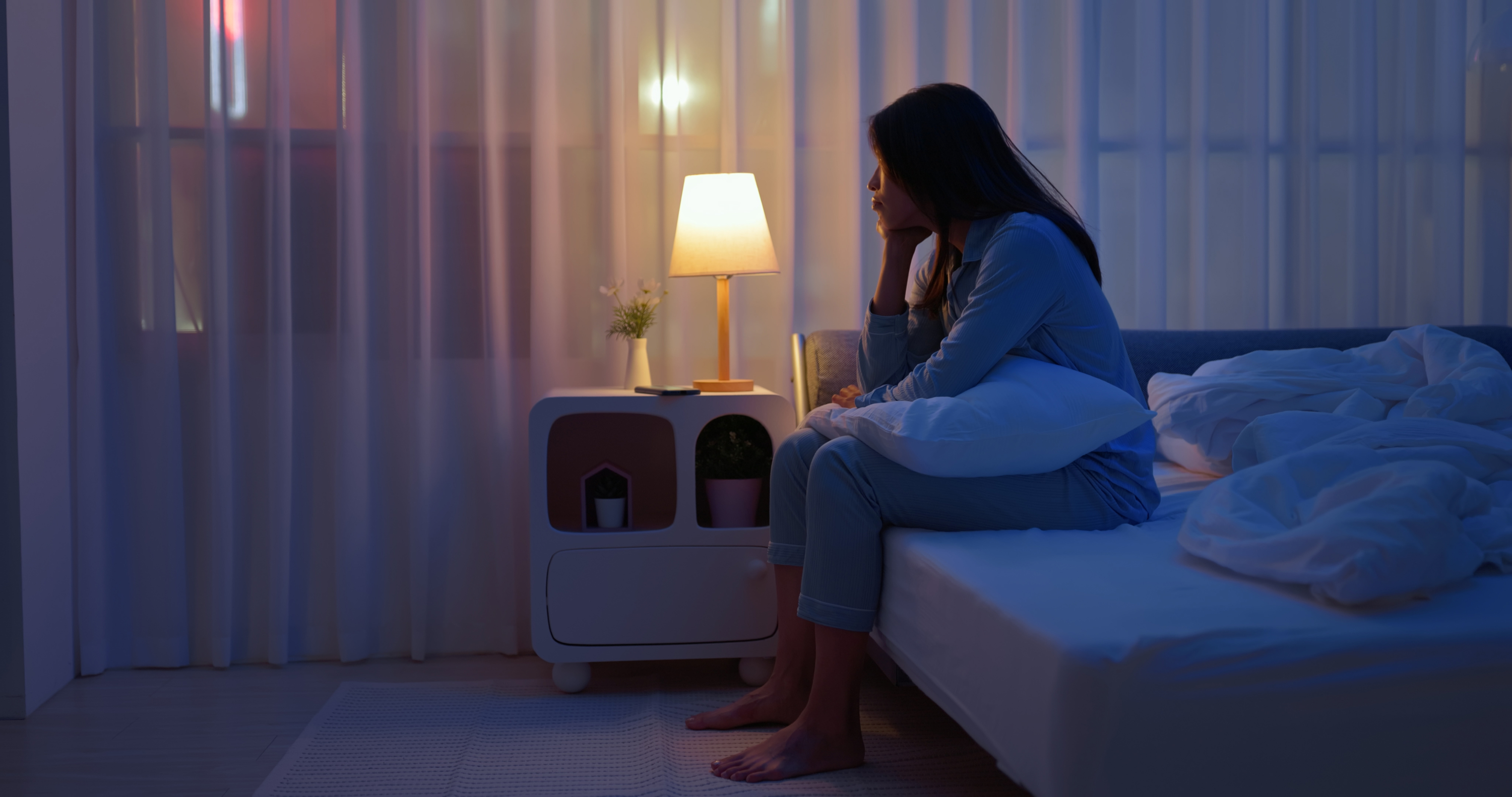Nighttime anxiety: Why your mind won't let you sleep and how can you regain calm?

Photo: iStock
You turn off the light, settle into bed, and instead of relaxing, your mind starts going over every detail of the day or anticipating future problems. If this happens to you, you're not alone: millions of people around the world experience so-called nighttime anxiety, a phenomenon that steals hours of sleep and erodes emotional and physical health.
Cleveland Clinic psychologist Susan Albers defines nocturnal anxiety as "a pattern of anxiety linked to difficulty disconnecting from the mental rhythm of the day." It's not a clinical diagnosis in itself, but rather a set of symptoms that intensify at night: intrusive thoughts, insomnia, palpitations, muscle tension, and that feeling that the mind never stops.
Photo: iStock.
According to clinical psychologist Ana Ramírez, in some cases this phenomenon reflects underlying disorders, such as generalized anxiety or post-traumatic stress. Furthermore, neuropsychologist Patricia Cortijo (Clínica Internacional) warned that the body can release adrenaline during these episodes, which exacerbates physical symptoms and disrupts sleep.
READ ALSO

According to Cortijo, during the day the mind is occupied by multiple stimuli and responsibilities, but in the stillness of the night, these distractions disappear. This is when the default mode network, linked to internal thinking and self-reflection, is activated. Studies published in Nature Reviews Neuroscience show that this network becomes hyperactive in people with anxiety or depression, generating repetitive thoughts that prevent relaxation.
Photo: iStock
Psychologist Alexandra Sabal (Ricardo Palma Clinic) adds that darkness and silence encourage introspection. “During the day, we tend to silence uncomfortable thoughts, but at night, when everything calms down, they emerge with force. It's like opening a mental Pandora's box,” she explained.
READ ALSO

Overthinking at night not only makes it difficult to fall asleep, it also leads to frequent awakenings and a feeling of exhaustion upon waking. For psychotherapist Karin Domínguez Ayesta (USIL), this cycle activates the stress system when the body should be shutting down, leading to emotional exhaustion, fatigue, and even nighttime panic attacks.
During the day we tend to silence uncomfortable thoughts, but at night, when everything calms down, they emerge with force.
Ramírez noted that these types of thoughts increase cortisol production and interfere with melatonin, a key sleep hormone. In the long term, according to Cortijo, ignoring the problem increases the risk of depression, anxiety, memory disorders, and even chronic diseases.
Photo: iStock
According to research from the Sleep and Health Research Program at the University of Arizona, more than 70% of people with nighttime anxiety experience thoughts focused on self-criticism or fear of the future. Cortijo explains that these thoughts typically fall into four categories:
- Unresolved problems of the day (work, family or personal).
- Worries about the future, especially financial or work-related.
- Negative self-evaluations, with reproaches about one's own performance.
- Existential or health fears, which are magnified in the dark.
Albers indicated that perfectionism, self-demandingness, and an excessive need for control are traits that predispose people to nighttime overthinking. Those who cannot tolerate uncertainty also tend to suffer more anxiety in bed, because their minds try to "fill in the blanks" with catastrophic scenarios.
READ ALSO

Over time, the brain can even associate the bed with discomfort. According to Cortijo, this process is a response to conditioning: if going to bed is repeatedly seen as a distressing experience, the mind anticipates discomfort and turns sleep into a threat.
For Ramírez, the warning sign appears when overthinking interferes with daily life. If it causes recurring insomnia, fatigue, irritability, or poor work performance, it's time to seek professional help.
Experts agree that overcoming nighttime anxiety requires conscious habits during the day and calming rituals before bed:
- Maintain regular sleep schedules to stabilize your biological clock.
- Exercise regularly, but not just before bedtime.
- Process emotions throughout the day through conversation, meditation, or writing.
- Limit caffeine, alcohol, and screens in the afternoon and evening.
- Create a relaxing pre-sleep ritual: light reading, a warm shower, or soft music.
- Practice deep breathing or progressive muscle relaxation.
- Write down your worries before going to sleep to free your mind.
If nighttime anxiety persists despite these measures, Cortijo recommends cognitive behavioral therapy (CBT), which is highly effective in modifying the thought patterns that perpetuate overthinking.
*This content was rewritten with the assistance of artificial intelligence based on information from El Comercio de Perú and reviewed by a journalist and an editor.
Follow all the information about Culture on Facebook and X , or in our weekly newsletter .
eltiempo




